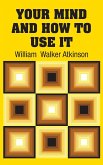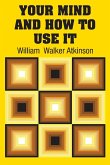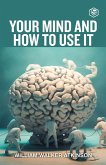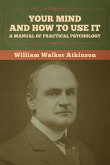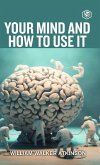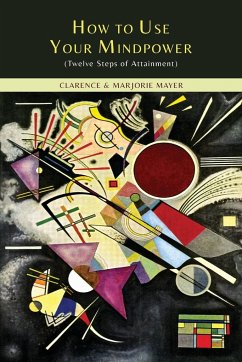It is not enough merely to have a sound mind-one must also learn how to use it, if he would become mentally efficient. The mechanism of mental states-the mental machinery by means of which we feel, think, and will-consists of the brain, nervous system, and the organs of sense. No matter what may be the real nature of mind,-no matter what may be the theory held regarding its activities,-it must be admitted that the mind is dependent upon this mechanism for the manifestation of what we know as mental states. In Your Mind and How to Use It Atkinson shows us the Mechanics of mind, Mental States, Memory, How Feelings and Emotions affect us and our Reasoning. Upon finishing this book the reader will have greater understanding on the power of the mind and how to better utilize that power.
Bitte wählen Sie Ihr Anliegen aus.
Rechnungen
Retourenschein anfordern
Bestellstatus
Storno



